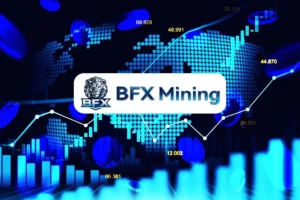Volatility Shares to Launch First Solana Futures ETF in the U.S.
On March 20, Volatility Shares will make history by launching the first-ever futures exchange-traded fund (ETF) focused on Solana (SOL) in the United States, as reported by Bloomberg News on March 19. This significant milestone will see the introduction of two distinct products: the Volatility Shares Solana ETF (SOLZ) and the Volatility Shares 2X Solana ETF (SOLT). Notably, Bloomberg ETF analyst Eric Balchunas has drawn parallels between Solana’s introduction to that of Bitcoin’s futures ETFs, BITO and BITX. However, he points out that these upcoming products may not mirror the high expectations typically associated with spot Bitcoin ETFs, indicating a cautious optimism surrounding this launch.
Understanding the New Solana ETFs
The Solana futures ETFs aim to provide cryptocurrency investors with innovative exposure to the rapidly evolving market. SOLZ will offer investors a chance to participate in Solana futures, allowing them to speculate on the future price movements of the asset. In contrast, SOLT is designed for those seeking leveraged exposure, providing double the returns (or losses) relative to the shifts in Solana’s futures prices. With expense ratios of 0.95% for SOLZ and 1.85% for SOLT, these products are positioned to appeal to different investor appetites, from conservative to more risk-tolerant profiles. By broadening the range of investment options, Volatility Shares is tapping into the growing demand for diversified exposure within the cryptocurrency sector.
A Product of Regulatory Optimism
The approval of these ETFs comes after a prolonged wait, with Volatility Shares having submitted its application to the U.S. Securities and Exchange Commission (SEC) back in December. This launch is viewed as part of a progressive trend toward crypto-based ETFs, a sentiment echoed by Bloomberg analysts Eric Balchunas and James Seyffart. Reflecting on the momentum that has propelled this launch, Volatility Shares CEO Justin Young credited the renewed optimism for crypto innovation in the U.S., which has been, in part, influenced by the previous administration under Donald Trump. Although the SEC has yet to approve a spot Solana ETF, the introduction of futures ETFs may serve as a stepping stone, as seen in the history of Bitcoin and Ethereum’s journeys towards obtaining spot ETF approvals.
Initial Trading Activity and Market Reception
The anticipation surrounding the Solana futures ETFs coincides with the commencement of trading on Solana futures themselves, which began on the Chicago Mercantile Exchange (CME) on March 17. Notably, the launch day volumes for Solana futures registered at $12.3 million—remarkably lower than Bitcoin’s $102.7 million and Ethereum’s $31 million on their respective launches. Analysts have pointed out that while the initial trading volume may appear muted, it is important to consider the differing market capitalizations of these assets at the time of their launches. K33’s head of research, Vetle Lunde, noted that when normalizing trading volumes with the assets’ market caps, Solana’s performance aligns closely with that of Bitcoin and Ethereum, suggesting a strategic entry point into the market.
Comparative Analysis: Spot vs. Futures ETFs
The contrasting reception to spot and futures ETFs remains a focal point of discussion among cryptocurrency investors. Balchunas emphasizes that investors typically prefer holding physical assets, and this tendency could influence the uptake of the newly launched Solana futures ETFs. Moreover, the popularity of spot ETFs, particularly in relation to Bitcoin, indicates a strong market bias towards direct asset ownership. As futures-based offerings like SOLZ and SOLT enter the marketplace, the industry will be observing closely to see if they can garner investor interest at a level that reflects a growing acceptance of altcoins in regulated frameworks.
The Future of Cryptocurrency Investment
As the cryptocurrency landscape evolves, the launch of Solana futures ETFs may pave the way for increased regulatory acceptance and investment innovations within the sector. With Solana being the first altcoin to gain approval for such an offering after Ethereum, this could signal a broader shift towards embracing diverse digital assets in the investment community. As more futures-based products enter the Market, the landscape for potential cryptocurrency investments continues to expand, offering both challenges and opportunities for investors looking to navigate this dynamic environment. Ultimately, the performance and reception of these Solana ETFs will embody the ongoing dialogue between regulatory frameworks and the demand for innovative investment solutions in a world increasingly defined by digital assets.













